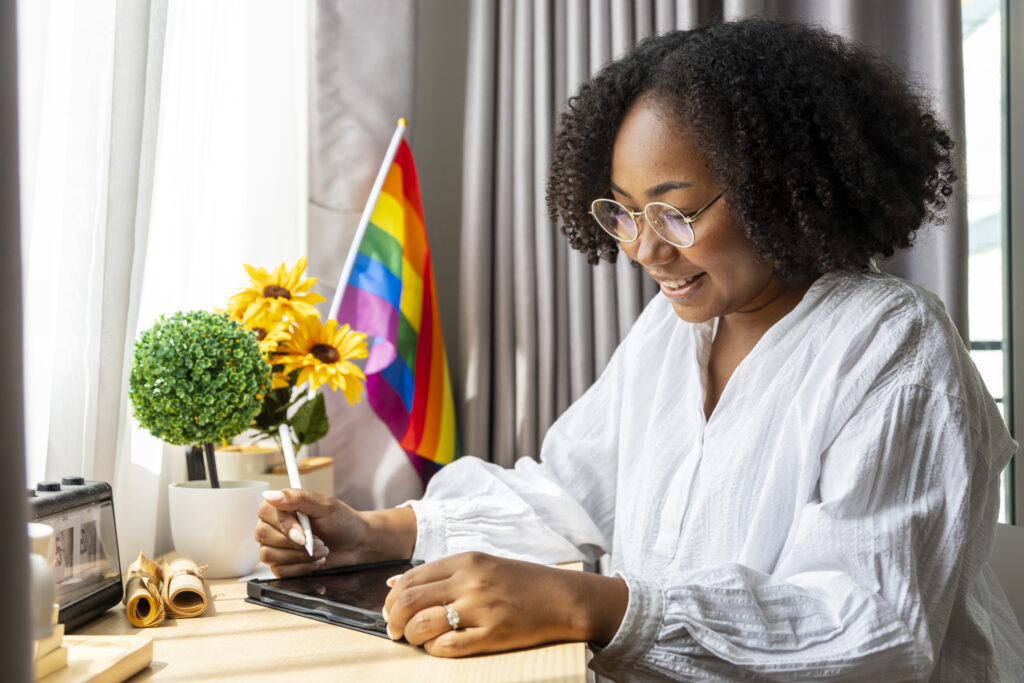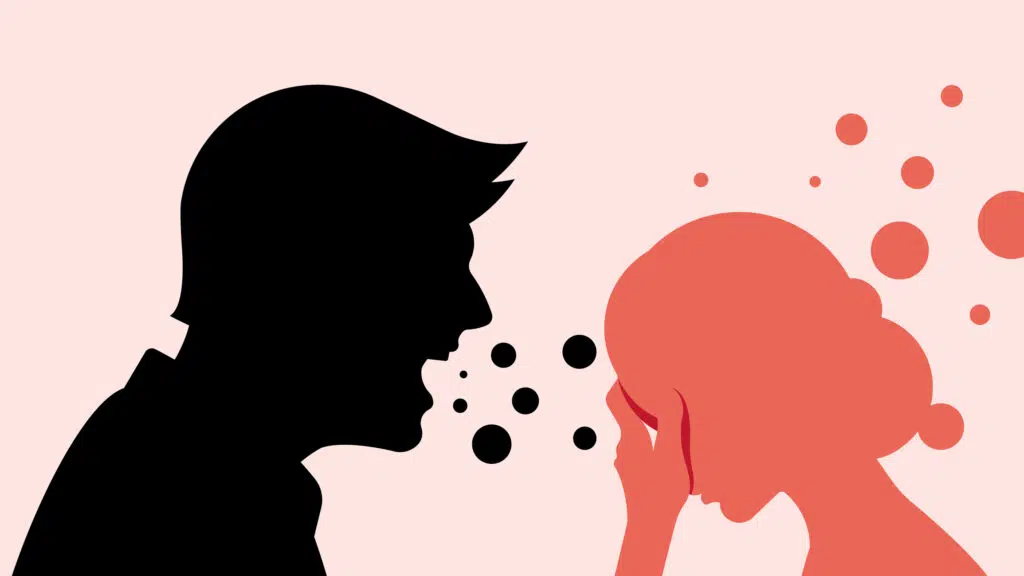Finding A Gay Therapist In NYC: Tips And Resources For The LGBTQ+ Community

Everyone can benefit from speaking with a therapist, no matter their background, gender, or sexual orientation. But when you have specific concerns around things like sexuality, culture, or identity, speaking to someone who can fully understand you and the world you live in can encourage openness in the therapeutic journey. When your therapist is equipped with the knowledge to guide you from a personal experience, it can offer several advantages. If you would prefer to speak with a gay therapist, here are our tips for narrowing down your search in NYC so that you can find the best match for you.
Understanding The Benefits Of Working With A Gay Therapist
Research shows that lesbian, gay, and bisexual people report greater dissatisfaction with therapy and counseling services than their straight counterparts. The study found that therapists were viewed as being more culturally competent if therapists had the following:
- Good awareness of heteronormativity
- Knowledge of issues affecting LGBTQ+ people
- Openness to diversity
- Inclusive intention
What’s more is that if the therapists were younger or LGB themselves, they were perceived as even more culturally competent. When we talk about cultural competence in therapy, it means that therapy is delivered in a patient-centered way that considers that individual’s experiences, both socially and culturally.
Another study shows similar results with a positive association between therapy satisfaction and LGBTQ+ knowledge and positive attitudes. It shows the importance of continued education and understanding of LGBTQ+ issues for therapists and how it’s crucial to create safe spaces using affirming care.
While finding a therapist is a deeply personal journey, you may prefer to speak with someone who shares part of your identity and has personal experience of your community. Not every mental health professional understands the difficulties and struggles of what it means to be a part of the LGBTQ+ community.
Affirmative Therapy For The LGBTQIA+ Community
Affirmative therapy is a type of approach to therapy that focuses on the specific needs of individuals from sexual and gender minorities. At the center of it, affirmative therapy is inclusive, validating, and affirming to clients that all sexualities and genders are healthy. Affirmative care aims to create a safe space with a mental health professional who has the knowledge and tools to help your unique experience. It understands and embraces how being LGBTQIA+ can impact your day-to-day life. An affirmative therapy experience addresses the negative effects of homophobia, discrimination, transphobia, and heterosexism that many LGBTQ+ people face. At the same time, affirmative therapy focuses on showing that there is no problem whatsoever with who you are, taking control, and affirming who you are.
You can integrate an affirmative care stance with an evidence-based therapeutic approach like cognitive behavioral therapy. A knowledgeable therapist won’t assume that LGBTQIA+ clients are in therapy solely due to issues related to their sexuality and gender. But, they understand how individual experiences and being in the LGBTQ+ community can have an impact. Ultimately, the therapy process should welcome all identities and create a safe space for therapy regardless of gender, sexuality, race, ethnicity, or disabilities.
How To Find A Gay Therapist In NYC
Where to Start Your Search: Online Directories And Referrals
Whether you’re looking for a gay therapist or an LGBTQ+-friendly and affirming mental health professional, it’s important to find the right match for you. Therapists have different experiences, qualifications, and specialties. Not all of them are well suited to support the LGBTQ+ community.
A good place to start looking for an LGBTQ+ informed and affirming therapist is online directories. The New York State Psychological Association and Thriving Center of Psychology therapist finders are helpful tools for narrowing your search.
Tips For Choosing The Right Therapist For You
As you continue your search for a therapist, no doubt you will have multiple options to consider. First, narrow down by location, so only look at therapists who offer therapy in NYC, either online or in person. Your therapist search is about finding someone who is the right ‘fit.’ Do you feel comfortable being open with this person?
Compatibility with a therapist is important and how you gel with them. Other factors you can narrow your search by include credentials, qualifications, specialties, and therapeutic approach. Typically, LGBTQIA+ therapists indicate in their bio or profile that they work with LGBTQ+ people or identify as LGBTQ+. Look for inclusive language and LGBTQ+ terminology too.
Once you narrow your search, ask for an initial consultation which is a short call or meeting to ask questions and get to know each other before committing to therapy. You could ask questions like:
- What is your experience of working with someone with my identity?
- What is your knowledge of stereotypes and misconceptions about my LGBTQ+ identity?
- What is your education and background?
- How much experience do you have working with my specific issue?
The Importance Of Open Communication With Your Therapist
Keep in mind that if you narrow your search to therapists who only identify as gay, you may find it too restrictive if you are also looking for a specific area of expertise like PTSD or anger management.
A good therapist creates a safe space, makes you feel listened to, and has attributes that make you feel comfortable. Maybe that’s not explaining specific terminology or why you feel a certain way in society. Specialty, location, personality, cost, and scheduling all factor into finding the right therapist.
When you have a good fit with a therapist, you can speak openly and honestly. That means that you and your therapist can discuss your goals effectively. Through mutual collaboration and respect, open communication lays the groundwork for the therapy journey.
Resources For LGBTQ+ Mental Health Support In NYC
Mental health problems don’t discriminate; they can affect anyone. But, mental health problems are more common in LGBTIQ+ people, with almost 70% of LGBTQ kids feeling persistently sad and hopeless.
Therapy takes time, and sometimes you can feel progress, and other times it’s slow. It’s such a personal journey that you can’t put an exact timeline on it. However, if you’re in a moment of crisis, there are LGBTQ+ mental health crisis hotlines:
- The Trevor Project – a 24/7 hotline for individuals with trained counselors who understand the issues that young LGBTQ people face.
- Thrive Lifeline – a text-based hotline that connects you with a qualified LGBTQIA+ crisis responder during times of acute crisis.
Another good resource for mental health support is the app Spectrum. The queer community app provides tools, connects you with a community, and lists mental health resources. You can also find a list of mental health resources for New Yorkers in the LGBTQI+ community from ThriveNYC, which aim to raise awareness of mental health issues throughout the city.
There are benefits to working with a gay therapist, but the best therapist for you can be more complex. Belonging to the same community as your therapist can mean you don’t have to explain the terminology. But speaking with a therapist outside of your community who fully understands and specializes in your specific concerns could also be transformative. Be patient in your therapist search, trust your gut, and find someone you can be open with. Focus on the connection you have with your therapist and if you can share honestly so that you can put the work in to better your mental health.
To start working with Thriving Center of Psychology, book an appointment online or call our team. We have offices in most major cities, including New York, LA, Miami, Chicago, and Austin.

Understanding Impostor Syndrome: Breaking Free from Self-Doubt
Imposter syndrome can make you feel like a fraud with no confidence in your abilities. You’re not alone; so many people feel like this. The good news is that you can break free from imposter syndrome and overcome self-doubt; here’s how.

Supporting a Loved One with Mental Illness: Practical Tips and Resources
There isn’t one perfect way to support a loved one with mental illness. How you care for someone will depend on you and the person you support. Mental illness can affect all aspects of a person, from mood to behavior. It can come as a shock when a loved one is diagnosed with a mental illness.

Is My Relationship One-Sided?
Do you feel like you’re doing all the work in a relationship? When a relationship is one-sided, it can create stress and conflict. If one partner invests more energy and effort to make the relationship work, it creates an imbalanced dynamic that can be draining in the long haul.

How To Recover From Burnout?
Manageable and short-term stress can increase alertness and give you the focus to hit a tight deadline. But left unchecked, chronic stress can result in burnout, leading to complete physical, mental, and emotional exhaustion.
